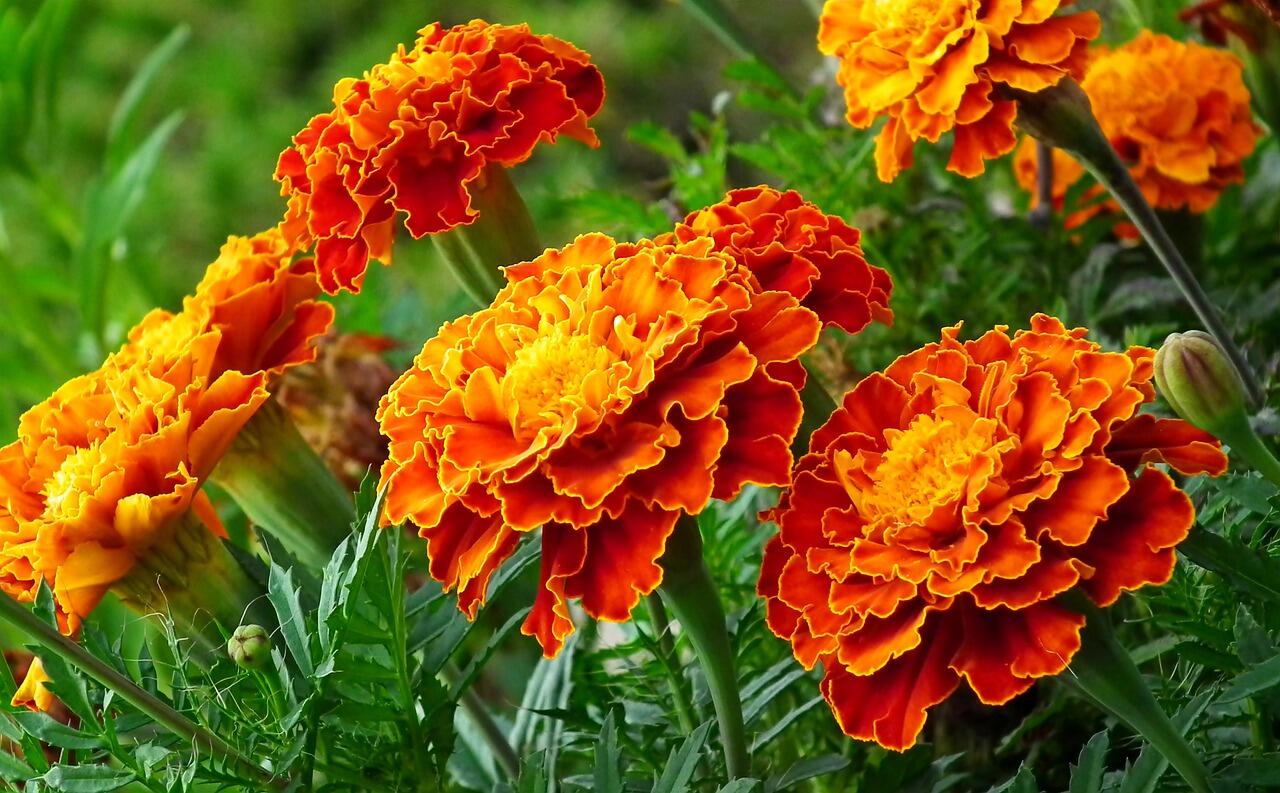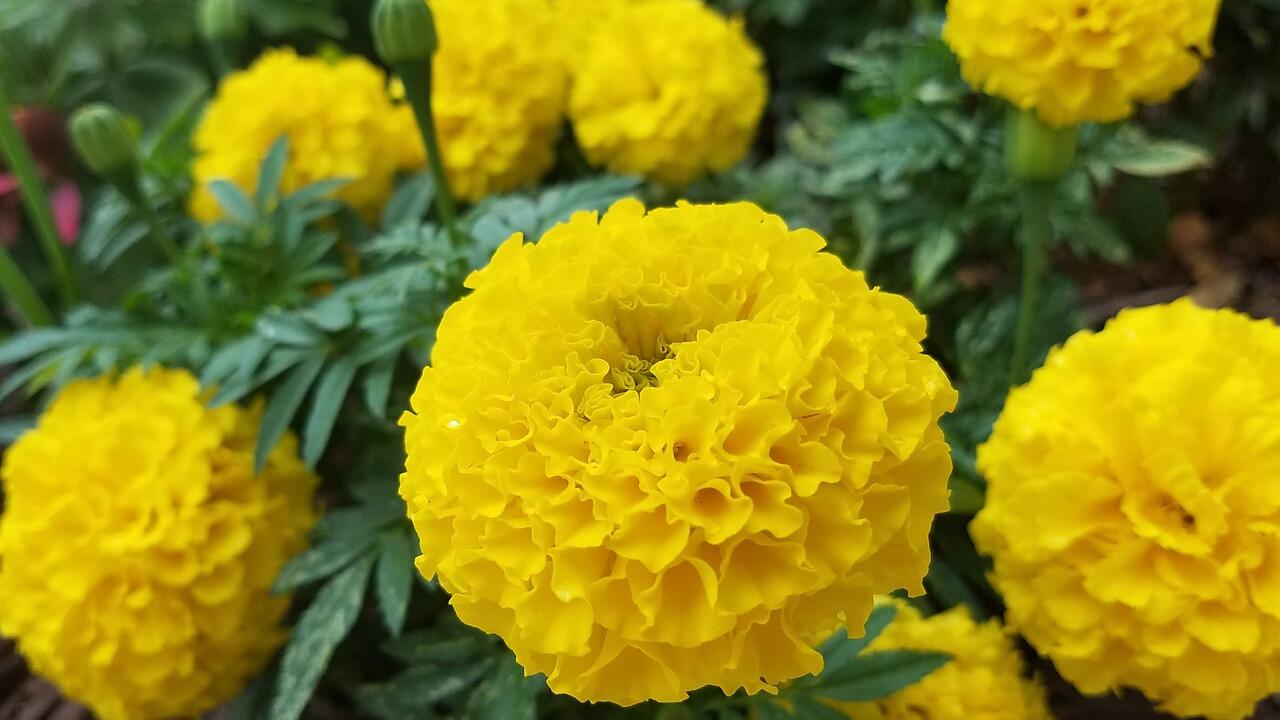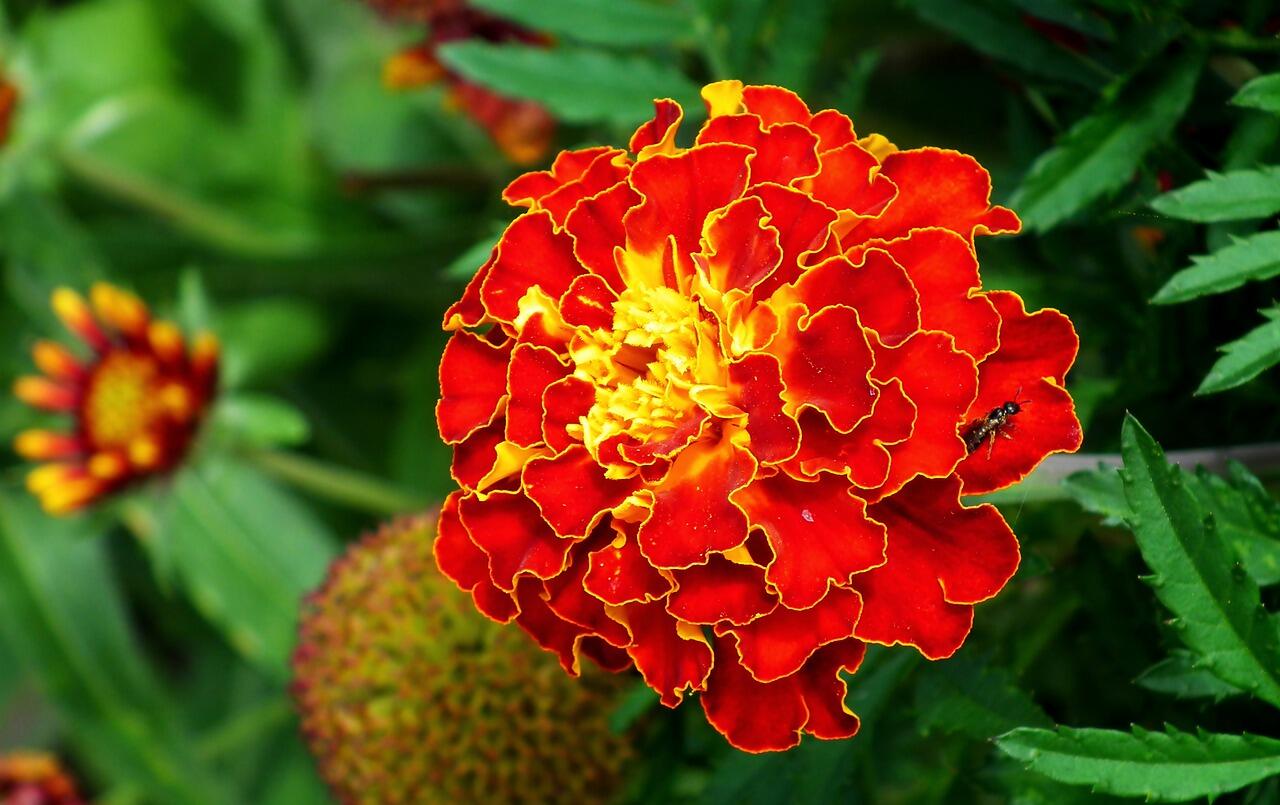Can you guess this month’s flower?
The color range of this flower is perfect for the autumn season. October’s birth flower has several meanings, both upbeat and, well, rather dire.
One more clue. Its name comes from the Virgin Mary and its golden color. That’s right… October’s birth flower is the marigold.
Very easy to grow, marigold (Tagetes erecta) can be sown directly into your garden in spring. Although, as with many other plants, why bother with seeds when plants are so readily available? African marigolds grow the tallest, while the French and signet types stay more compact. Very adaptable to many soils, they will do best if organic compost is added to the soil. Often marigolds look their best when other annual flowers begin to fade in early fall as they don’t mind heat and bloom non-stop until frost. Water if needed and feed every two weeks once they begin to flower. Marigolds have a distinctive scent and may be a deterrent to cabbage moths. For this reason, some gardeners plant marigolds as companion plants to broccoli and cabbage. In fact, studies have shown that marigold roots release a substance in the ground that reduces root-knot nematodes and other disease producing organisms. Slugs, on the other hand, find marigolds appealing. Sluggo, an organic slug bait that is non-toxic to people, wildlife, and pets, will help control slugs. Deadheading is encouraged to keep the plants looking their best.
Penn State Master Gardeners are ready to help with all your gardening problems. If you have a question about marigolds or any other garden issue, please call the Penn State Extension Office.
—written by Roxanne Carstetter, Penn State Master Gardener student




